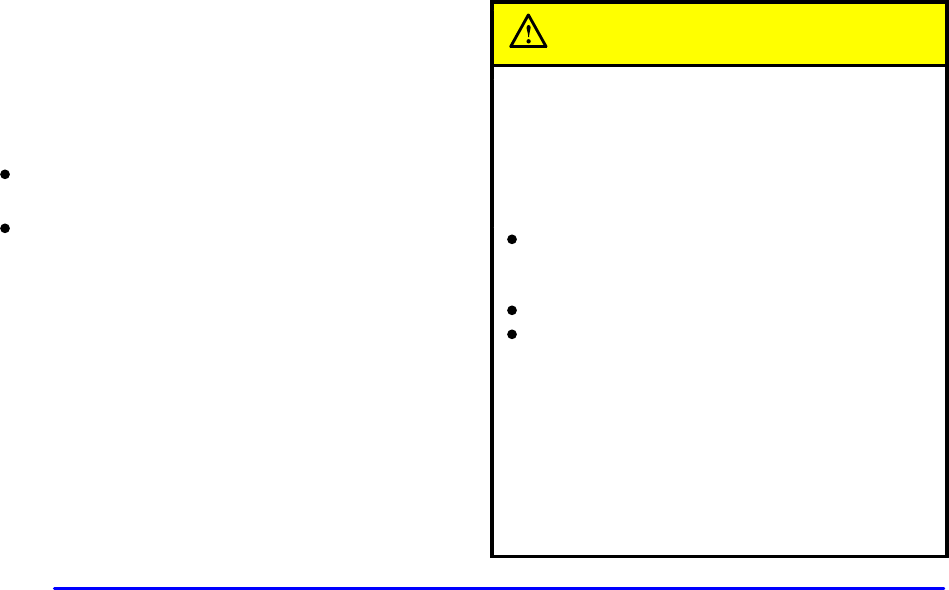
4-64
Trailer Brakes
If your trailer weighs more than 2,000 lbs. (900 kg)
loaded, then it needs its own brakes
-- and they must be
adequate. Be sure to read and follow the instructions for
the trailer brakes so you’ll be able to install, adjust and
maintain them properly.
Your trailer brake system can tap into the vehicle’s
hydraulic brake system only if:
The trailer parts can withstand 3,000 psi
(20 650 kPa) of pressure.
The trailer’s brake system will use less than
0.02 cubic inches (0.3 cc) of fluid from your
vehicle’s master cylinder. Otherwise, both braking
systems won’t work well. You could even lose
your brakes.
If everything checks out this far, make the brake tap
at the port on the master cylinder that sends the fluid to
the rear brakes. But don’t use copper tubing for this. If
you do, it will bend and finally break off. Use steel
brake tubing.
Driving with a Trailer
CAUTION:
If you have a rear-most window open and you
pull a trailer with your vehicle, carbon monoxide
(CO) could come into your vehicle. You can’t see
or smell CO. It can cause unconsciousness or
death. See “Engine Exhaust” in the Index. To
maximize your safety when towing a trailer:
Have your exhaust system inspected for
leaks, and make necessary repairs before
starting on your trip.
Keep the rear
-most windows closed.
If exhaust does come into your vehicle
through a window in the rear or another
opening, drive with your front, main
heating or cooling system on and with the
fan on any speed. This will bring fresh,
outside air into your vehicle. Do not use
MAX A/C because it only recirculates the
air inside your vehicle. See “Comfort
Controls” in the Index.


















